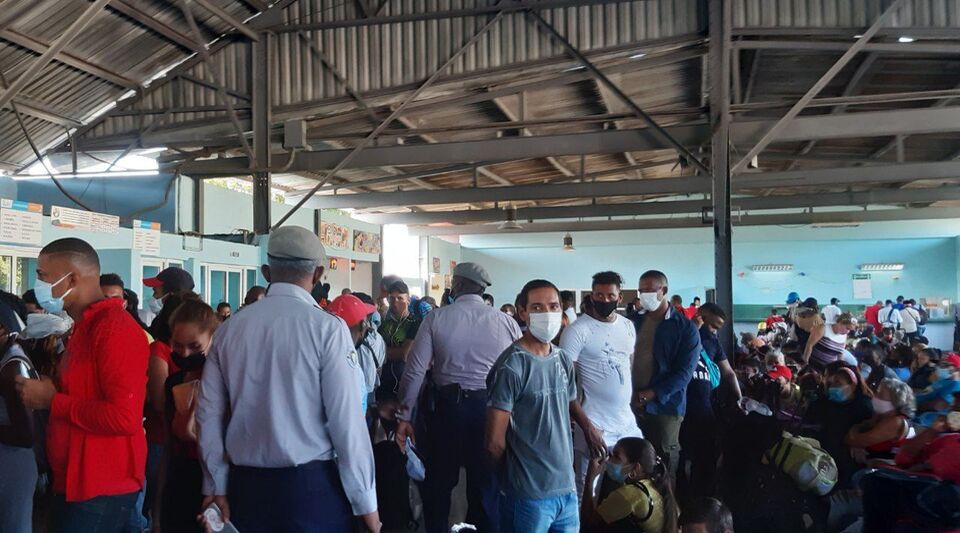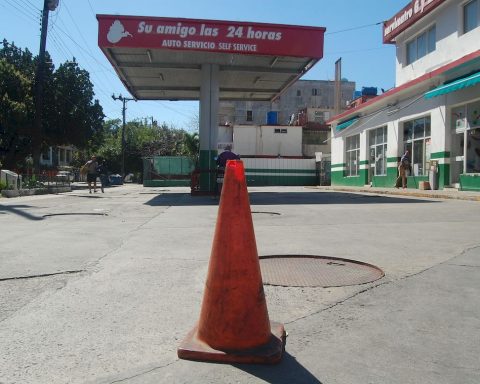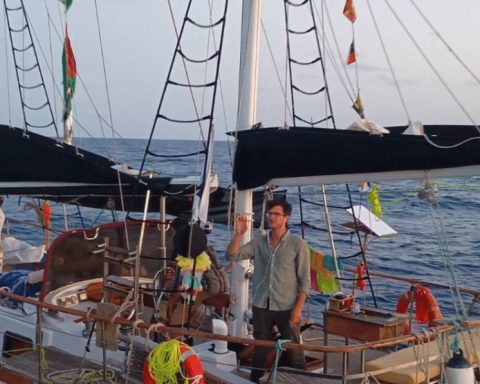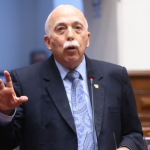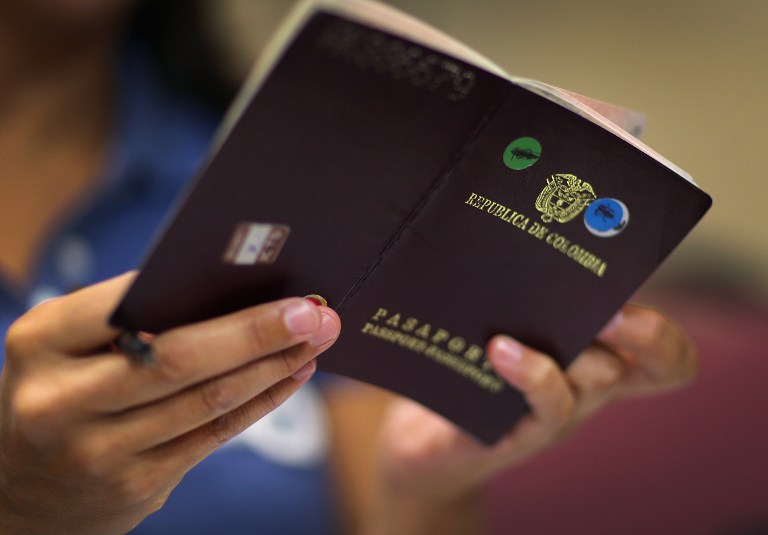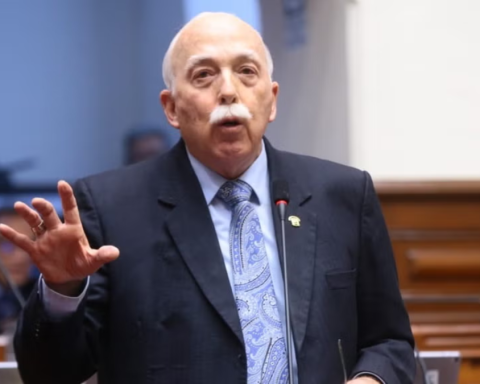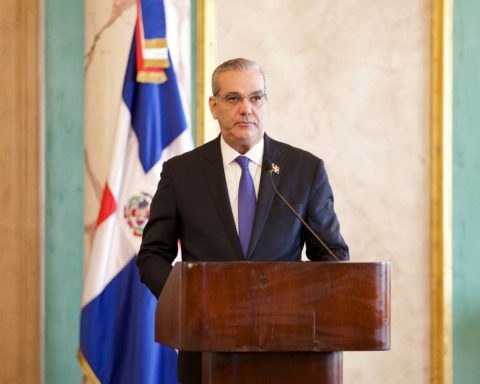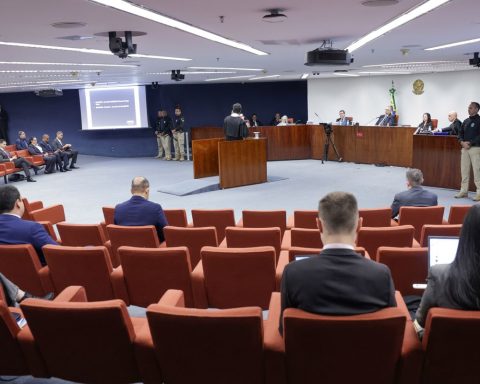Pork, cassava with mojo sauce and long lines to travel. That has been for decades the “menu” for the end of the year in Cuba, but this December there is a lack of food and the lines multiply to get a ticket on an interprovincial bus. At the Villanueva station in Havana, hundreds of people wait and even fight to get on anything that has wheels and a free seat.
Lying on their briefcases, with restless children who do not understand why they have been in the same place for so many hours and shouts of claim that are heard from time to time, this is how the last hours of this 2021 are lived in the large premises that houses the waiting list to reach some empty space in the state buses that leave from the Cuban capital.
Moving to be with the family during the Christmas festivities, and especially at dinner on December 31, has been a tradition on the Island, where every year at this time the demand for tickets on trains and buses multiplies. In the midst of the economic crisis that the country is experiencing, the difficulties to complete this trip are much greater and the prices for private transport are higher.
Despite the natural ventilation offered by the station’s windows and lattices, the smell that comes out of the bathrooms is not slowed by the masks. The regulatory distance imposed by the covid-19 pandemic can hardly be respected, as passengers mill around the ticket booths so as not to miss any opportunity. The seats are not enough for the volume of people who spend the night, even days, under its roof.
Tickets sold out just days after going on sale and thousands of customers have been stranded in “last minute” terminals across the country.
But, the discomforts start long before arriving at the station. The area is difficult to access and is off the beaten track of public transport and collective taxis, which is a serious problem, especially for travelers with luggage and children. The food supply is poor and the private vendors who hang around know that in the midst of desperation people are willing to pay more for a sandwich or a soda.
Jorge hopes to travel to Bayamo with his wife and daughter. “We have been here since early in the morning,” he tells 14ymedio at the edge of noon in the middle of a crowded room, among which were several children of different ages. His eyebrows move in anguish as he keeps an eye on the briefcase and the two backpacks that are all his luggage.
“We hope to be able to go today or early tomorrow, but the outlook looks ugly, look how this place is,” explains Jorge as he points to the rows of seats, all occupied, and the long lines to get on the waiting list. Most of those who wait have spent hours and up to several days without leaving the station.
As every December, Empresa Viajero announced that it would put on sale new capacities for interprovincial transport during this end of the year. However, tickets sold out within days of going on sale and thousands of customers have been stranded in “last minute” terminals across the country.
After a long time, a Yutong bus arrives that previously loaded passengers at the National Bus Terminal. Through the windows you can see practically all the seats occupied, from a loudspeaker from which you can barely understand what it says, a female voice is heard reading a couple of numbers from the waiting list, the lucky few who will be able to get into the vehicle.
Everyone mobilizes. In the case of families with several members, one of them goes to the locker and the others look after the suitcases. We hear phrases of protest, cries of indignation that ask the State to put reinforcements from other buses to ensure that people reach their destination. After several minutes of loud demands, most of those who got up come back looking frustrated. Some, exhausted by waiting, decide to opt for private offers.
Outside the premises several trucks, formerly cargo and now adapted to transport passengers, advertise their services. There are up to 27 of these vehicles that have been on the island’s roads for more than half a century. Some have freshly painted, some with padded seats, and the most comfortable even have air conditioning. But the price of a ticket is several times more expensive than that of state buses.
Jorge, who only has a salary in national currency, cannot pay the 4,500 pesos that cost the three seats his family needs. “Paying the 280 per person charged by the State to Bayamo seems too much to me, so it is impossible to think about the individual’s option”, although the official route may be frustrating or impossible.
The deterioration of vehicles this year has been combined with cuts in fuel consumption that affect the entire country. Passenger transport has been among the worst affected sectors.
Other passengers, like Yander, who signed up on the waiting list on Tuesday, say that what you have to have is patience. “Yesterday I missed my turn, because I had such a high number that I went home to rest, since it was unlikely that I would play on the same day.” The reason he missed it was that many of the travelers in front of him had despaired and opted for trucks.
“Yesterday I missed my turn, because I had such a high number that I went home to rest, since it was unlikely that I would be called on the same day”
But not all destinations “move” the same way in the queue. Longer the journey, more waiting time. Provinces like Santiago de Cuba, Guantánamo and Holguín can mean days of waiting to be able to board a state vehicle.
“That’s why this time I come with the matules and with my fingers crossed so that someone else will pay the 2,000 to Santiago, I’m going to the Yutong,” Yander sentenced, not before making his opinion clear: “The private companies charge those prices because the State is not able to guarantee transportation to the people. “
Others see the private option as the only way to alleviate the tense transportation situation on the island. Radimir Galan, a Santiago resident living in Havana who spent three hours at the Villanueva Terminal, considers that “the private initiative is the one that end shows his face for the town, “he specified in conversation with 14ymedio.
Meanwhile, in Villanueva nothing seems to move: the seats are still full, the families clinging to their briefcases and the dilemma between waiting for the slow and inefficient state mechanism or going out to the parking lot and taking a private truck.
________________________
Collaborate with our work:
The team of 14ymedio He is committed to doing serious journalism that reflects the reality of deep Cuba. Thank you for joining us on this long road. We invite you to continue supporting us, but this time becoming a member of our journal. Together we can continue transforming journalism in Cuba.
